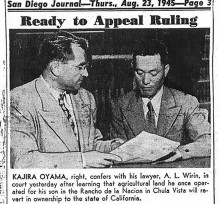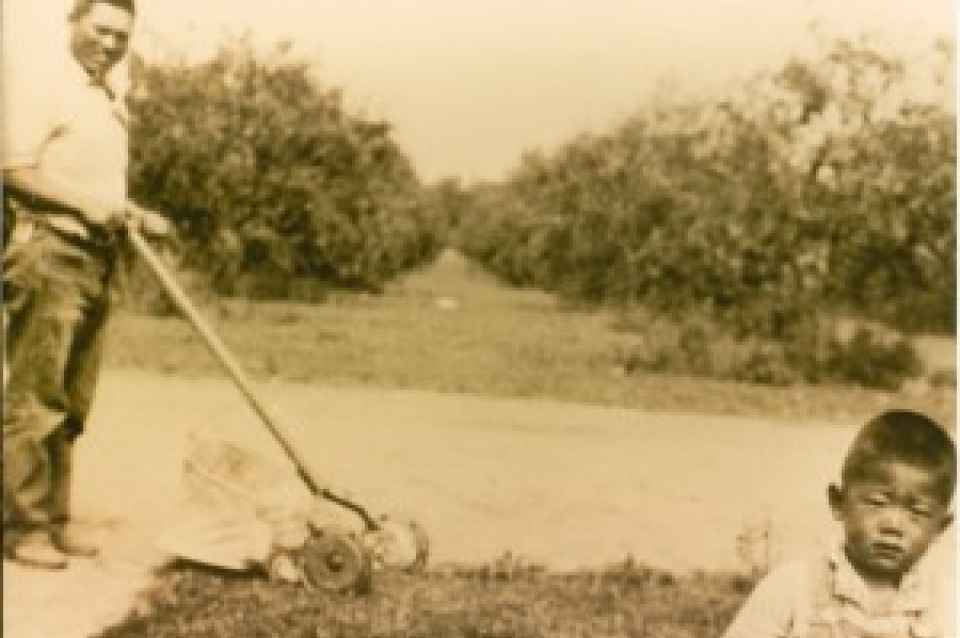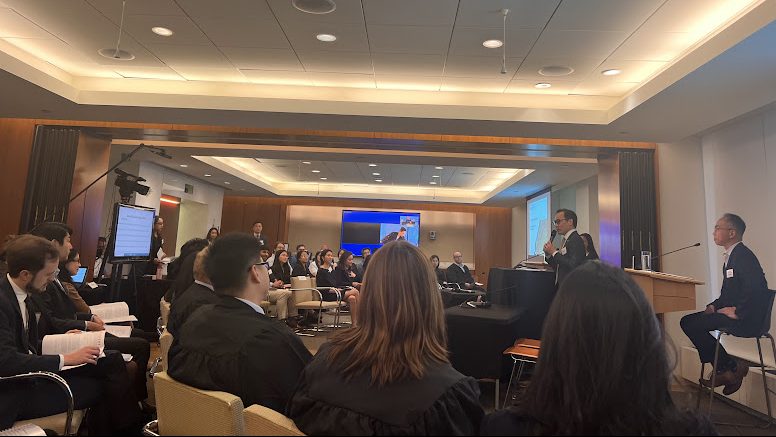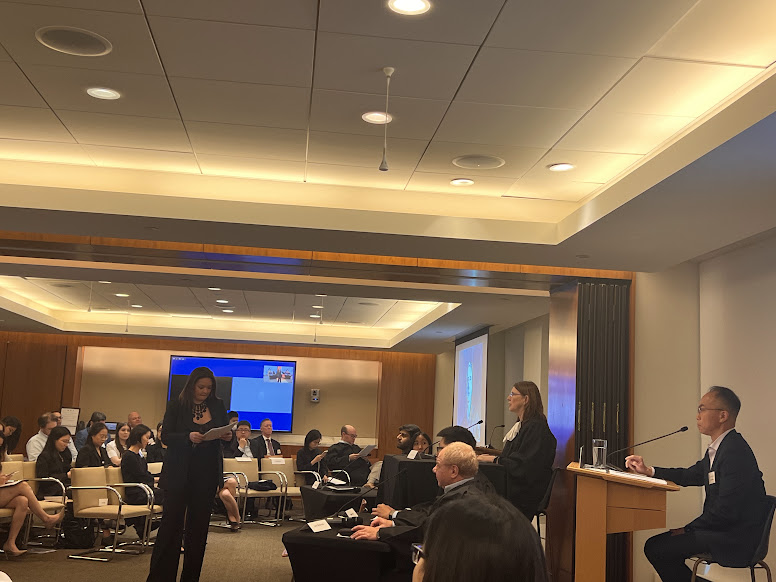
On May 24, AABANY and Allen & Overy (A&O) presented a reenactment of the historic case Oyama v. State of California, in commemoration of Asian American and Pacific Islander (AAPI) Heritage Month. This landmark case was reenacted by attorneys and law students to tell a captivating story involving AAPI litigants on an important constitutional case known to very few but which has resonance to the present day.
As described on the AABANY Trial Reenactments website:
Inspired by Prof. Rose Cuison Villazor’s law review article, “Rediscovering Oyama v. California: At the Intersection of Property, Race, and Citizenship,” 87 Wash. U. L. Rev. 979 (2010), the reenactment dealt with the California Alien Land Law which prevented “aliens ineligible from citizenship” – i.e., Japanese – from owning land. The case explored the ways in which denial of property rights also served to promote racial discrimination against the Japanese in California. In the case, Kajiro Oyama, a Japanese immigrant who was ineligible for United States citizenship at the time, bought a parcel of farmland which he deeded to his minor son Fred, who was born in the United States and was thus a citizen. Under the Alien Land Laws, this transaction was deemed a fraud and the State of California brought suit against Fred Oyama to escheat the property. The case went all the way up to the United States Supreme Court, where the statute’s constitutionality was placed before the Court for its review.

The in-person reenactment was followed by a lively panel discussion co-sponsored by A&O’s U.S. Asian Affinity Network. The discussion was led by A&O Partner John Hwang and Associate Rachel Lee and featuring guest speakers Professor Rose Cuison-Villazor and Shenyang Wu. As the Interim Co-Dean at Rutgers Law School, Professor Cuison-Villazor shared details of her personal discussion with the Oyama family in 2010 for her paper. Shenyang, a partner at Alpha Law NY PLLC and a co-founder of the Chinese American Legal Defense Alliance (CALDA), reinforced that sentiments from legislation like the Alien Land Act of 1913 are still alive by noting Texas lawmakers’ recent decision to restrict Chinese foreign nationals’ land ownership.


A particularly poignant moment during the panel occurred when Rachel Lee conducted an informal survey of the number of lawyers who had heard of the Oyama v. California case prior to the reenactment. In a room of more than 50 attorneys and law students, less than 5 people raised their hands. This demonstrates how much more work needs to be done for AAPI and the law in legal education and highlights the importance of reenactments like this. The significance of the case for the AAPI community extends beyond issues of immigration, residency, and land ownership. It symbolizes the power of every voice that deserves to be heard and every story that needs to be told.
We thank Allen & Overy and all of the participants in the reenactment for giving their time to raise awareness of the Oyama family’s legacy. For more information about AABANY’s trial reenactment project, visit https://reenactments.aabany.org/.

